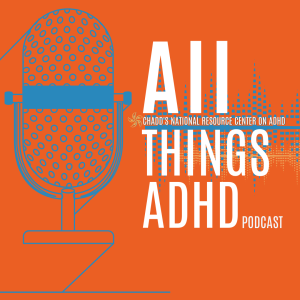
Complex ADHD is ADHD that co-occurs with one or more conditions that can complicate the symptoms of ADHD. Two-thirds of children with ADHD have at least one coexisting condition. These coexisting conditions may include oppositional defiant disorder (ODD), anxiety disorders, depression, learning disorders, autism spectrum disorders, intellectual disability, and tics (Tourette Syndrome).
Treatment of complex ADHD begins with treating the condition that is most prominent and may involve behavior therapy, parent training, or medication. When medication is used, stimulants are the first line of treatment. Non-stimulant medications may be considered when stimulants do not work. If learning disorders coexist with ADHD, academic interventions are needed.
In this ADHD 365 podcast, Dr. Tanya Froehlich offers expert information on complex ADHD, focusing on the conditions that often coexist with ADHD. She discusses the recommended treatments based on research for each of the conditions, and the options available when first-line treatments don't work.
Tanya Froehlich, MD, MS.
Dr. Tanya Froehlich is a professor of pediatrics at Cincinnati Children’s Hospital Medical Center in the Division of Developmental and Behavioral Pediatrics. She is a developmental-behavioral pediatrician and an ADHD clinical specialist. Dr. Froehlich serves on the national ADHD clinical practice guideline development committees for both the American Academy of Pediatrics and the Society for Development and Behavioral Pediatrics.
Learning Objectives:
- What is complex ADHD?
- Conditions that often coexist with ADHD
- Recommended behavioral treatment including behavior therapy and parent training
- Treatment for coexisting learning disorders
- Medication options available for complex ADHD
No comments yet. Be the first to say something!